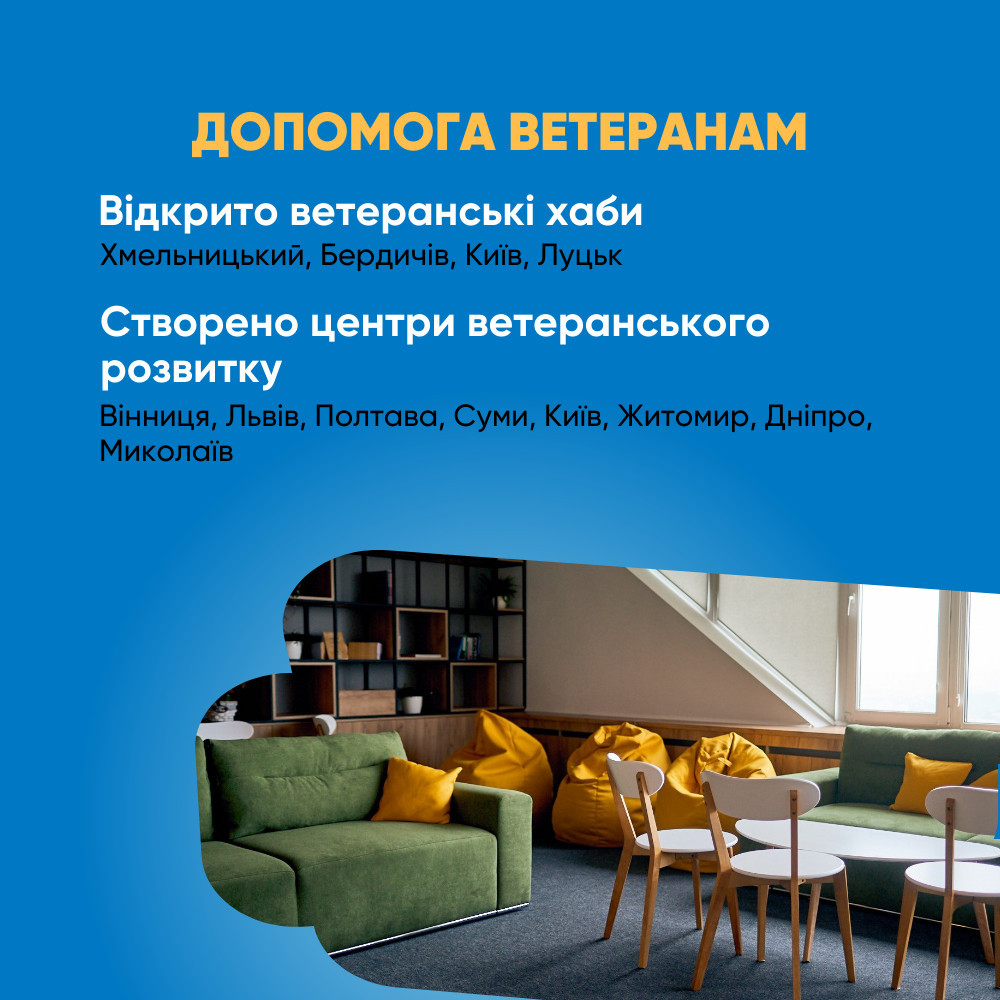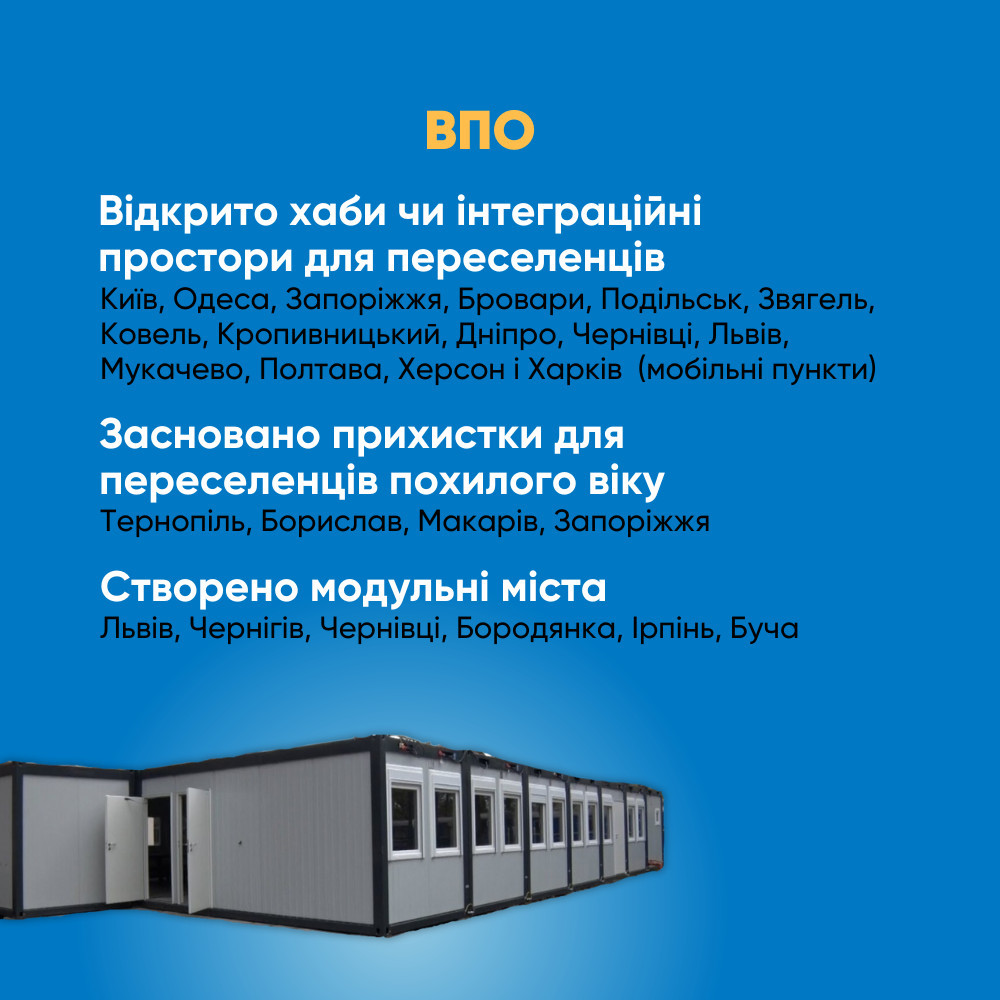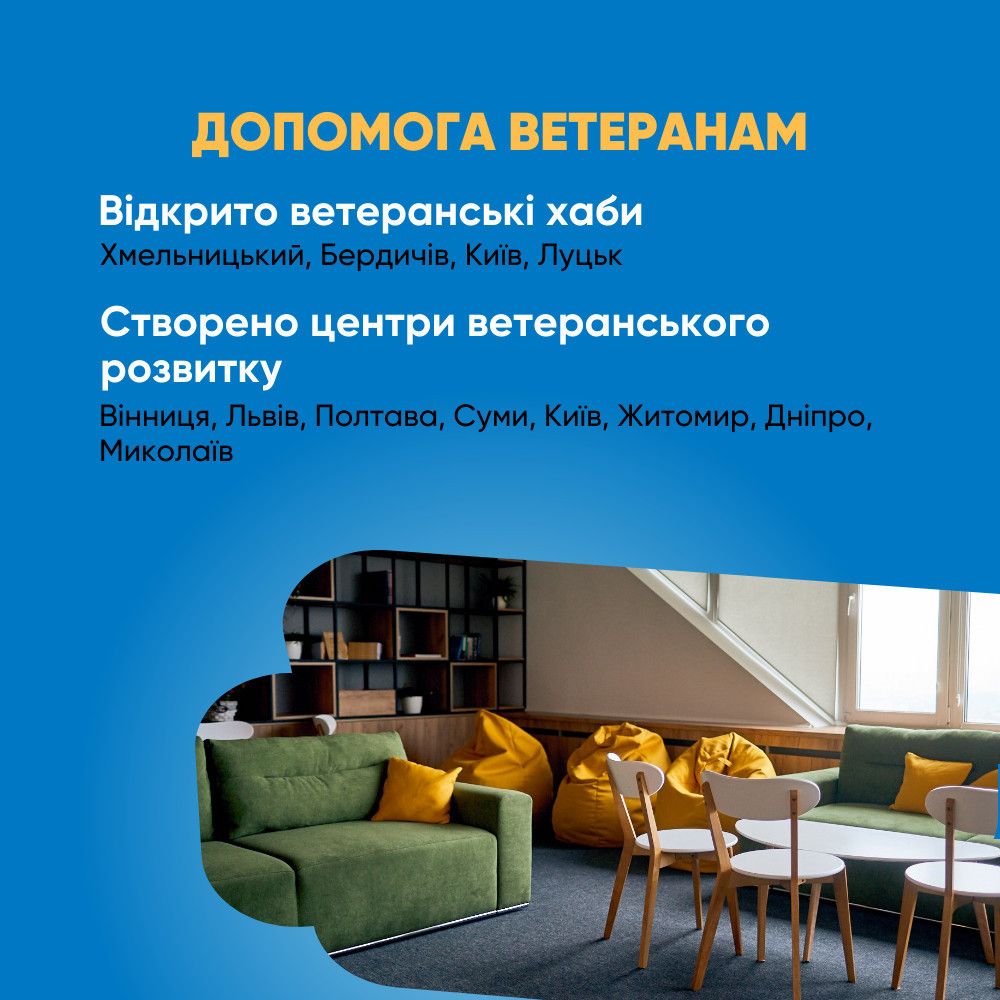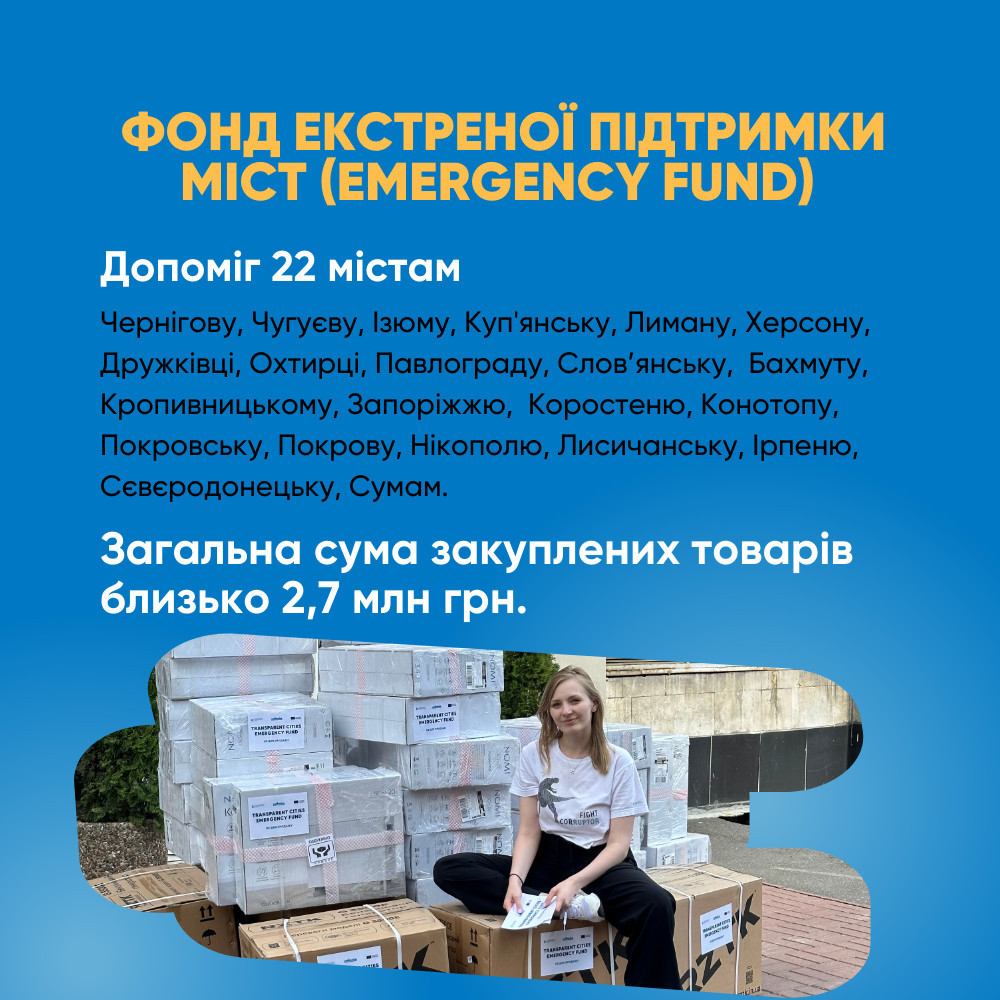Two years have passed since the beginning of the full-scale invasion when peaceful life for all Ukrainians ended and our country's struggle for existence began.
However, the cities survived and successfully resisted the enemy, developing and actively responding to the challenges of the war with new initiatives.
We have selected examples of solutions implemented by cities in the spheres of security, economy, and medicine, and what they have done to support veterans, displaced persons, and citizens in such a difficult time for our country.

Modular shelters are installed at public transport stops and crowded places where it is impossible to build an underground shelter. They consist of modules that can be used to create shelters of various sizes with a capacity of up to several dozen people. Modular shelters can protect against debris and blast waves, but they will not help in a direct hit.
The Closed Sky pilot project was created to completely close the sky over a selected city from drones within a certain radius. The anti-drone system, which detects and neutralizes drones, consists of a gun with antennas and a backpack with electronic equipment. The control center allows tracking drones in real-time. This system detects 100% of drones within the radar range, and the shoot-down efficiency is almost 80%.
The Safety Classroom is a nationwide project created to teach students first aid skills, fire, mine safety, and civil defense rules, and to acquaint them with the algorithm of actions in case of emergencies. Typically, such classes are equipped with different zones that help children learn and consolidate theoretical material in practice.

Veteran hubs and veteran space centers are places where veterans can address any problems or spend time. Veteran development centers receive free psychological assistance, legal advice, and employment assistance. The main goal of these institutions is to reintegrate veterans into society and help them return to civilian life.

Hubs or integration spaces have been opened for people who have fled the active combat zone or temporarily uncontrolled territories. They receive free consultations from social workers, psychologists, and lawyers there.
Shelters for older IDPs are designed to accommodate single people aged 60 and older. Here they are provided with everything they need for a comfortable stay free of charge. Moreover, free psychological support and consultative medical care are provided, too.
The modular towns are designed to solve the housing problems of IDPs from the occupied territories, areas where hostilities are taking place, or people who have lost their homes. Usually, they consist of separate modular structures-houses that are equipped with the necessary furniture and appliances. There are also recreational facilities, sports, and children's playgrounds on the territory of the towns.

Rehabilitation centers for the military provide treatment of the locomotive system, psychological support, social adaptation of the military, and comprehensive support in returning them to civilian life.
The psychosocial support centers primarily serve military personnel, their families, and families of the killed, wounded, and POWs, as well as IDPs and refugees. In many cities, these centers pay special attention to helping children. They are provided with art classes, active games, and family activities aimed at improving interaction between all family members. The goal of such centers is usually to improve the mental health of the affected population. The centers are staffed by volunteers and psychologists who help people overcome stress, relieve emotional tension, and restore a sense of security.

Centers for victims of domestic and gender-based violence or spaces for women and children have become another safe and comfortable place where citizens can get the support they need in a difficult time in their lives. The need for such centers has arisen because, during the war, women and girls in Ukraine became more vulnerable to gender-based violence and often do not know how to access specialized services in such situations. Women receive medical, social, and psychological assistance and legal advice there.

Business support centers were created to promote entrepreneurship so that businesses can reach new volumes, find partners, and establish the necessary connections. Local entrepreneurs and those who are just starting their own businesses can receive free advice on business development and legal issues, as well as professional training.
The relocated business center in Lviv is a temporary structure with a total area of 450 square meters. Businesses that were relocated due to the war and manufacture parts and mechanisms for prostheses can set up their production on preferential terms.
Business and career hubs for women are aimed at developing the professional potential and financial capacity of the city's residents. They help women start their businesses, and provide training and counseling.

Transparent Cities helped too, and in the first months of the full-scale invasion, we created an Emergency Fund to help cities. We responded to their requests and provided them with the necessary equipment and special means.
Due to the equipment the cities received:
- heating stations were set up;
- local governments resumed their work
- hubs and support centers for displaced persons were opened.